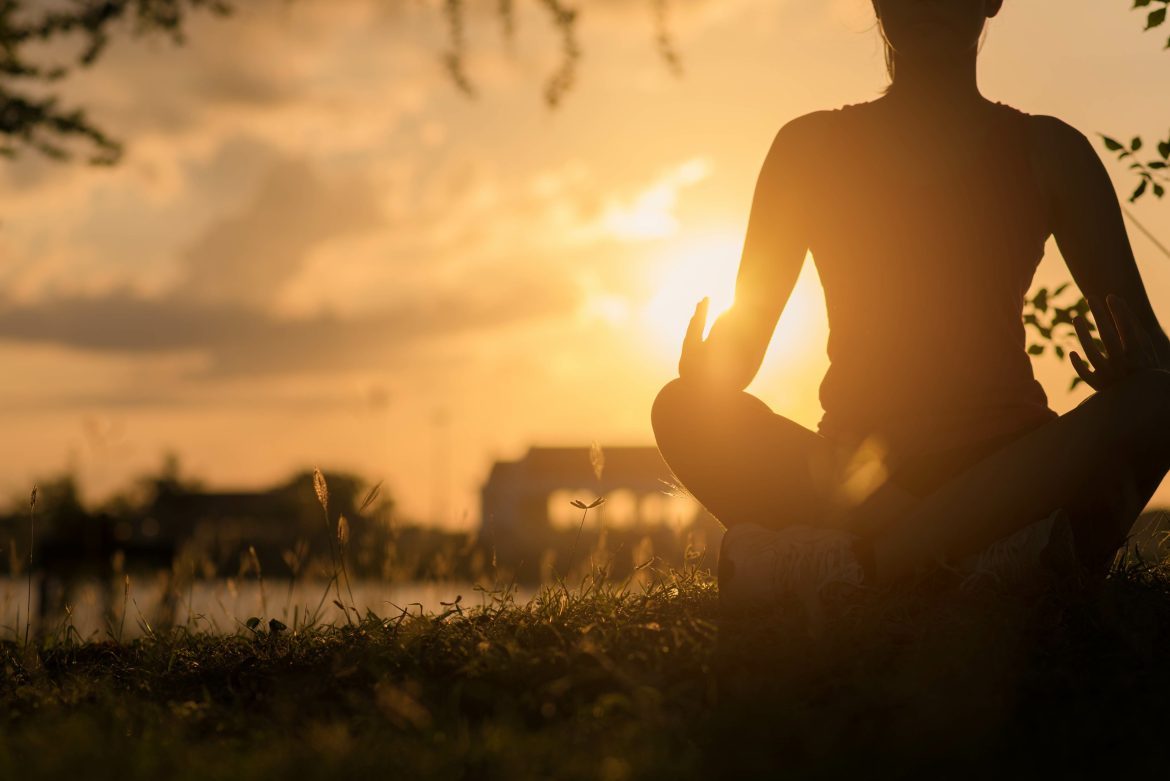Health
Meditation provides calming solace — except when it doesn’t
Researchers find ways to promote altered states of consciousness, reduce risks of distress that affect some
Meditation is ascendant in the U.S.
Clinicians recommend the practice to treat anxiety and depression without the risk of drug dependency, and millions practice meditation alone or on retreats. In 2022, the National Institutes of Health found that 17.3 percent of U.S. adults meditated, up from 7.5 percent two decades before.
Its effects are largely positive, shown to alleviate stress, anxiety, and depression. Neuroimaging studies have explored the neurobiological effects that lead to improved self-awareness, emotional regulation, and attentional control.
“These kinds of experiences are surprisingly widespread.”
Matthew Sacchet
But not every experience with meditation provides solace. Matthew Sacchet, director of the meditation research program at Harvard Medical School, has determined in recent studies that the practice can create suffering in some cases, an issue that deserves greater attention from researchers and clinicians.
Meditation can lead to altered states of consciousness that many experience as mystical, spiritual, energetic, or magical. While often described in traditional meditation manuals, these experiences — including out-of-body experiences and changes in perceived size — are largely overlooked in modern scientific literature.
“These kinds of experiences are surprisingly widespread,” said Sacchet, who is also an associate professor at HMS.
In a 2024 paper, he and his colleagues, including first author Malcolm Wright of Massey University, found 45 percent of participants reported non-pharmacologically induced meditation-related altered states at least once in their lives. While the episodes were mostly positive, Sacchet was surprised by how often they weren’t — and how little those instances were discussed.
“There was evidence of an epidemic of subsequent suffering,” he said, with 13 percent of people reporting moderate or greater suffering outcomes from their experiences.
“There was evidence of an epidemic of subsequent suffering.”
Matthew Sacchet
With more people experimenting with meditation and other potentially reality-shifting practices, he said that clinical professionals weren’t taking negative experiences seriously or were unaware they were happening.
To examine the scope and impact of meditation-related altered states, he and his colleagues used survey data from more than 3,000 people to determine the risk factors for meditation-related altered states of consciousness and subsequent suffering.
They also studied how religious practice, mental health status, and other variables shaped these experiences.
In a 2025 paper published in the academic journal Clinical Psychological Science, the researchers studied predictors for meditation-related altered states and subsequent challenges related to these experiences.
Among the factors that they studied, the three strongest predictors of meditation-related altered states were attempted divine, magical, or occult practices; past psychedelic use; and contemplation of mysteries.
“If you try to distort reality, you might succeed,” said Sacchet. “And if you’ve taken psychedelics, then you’re more likely to have these kinds of experiences.”
Those same factors, along with total time in spiritual or meditative practice outside retreats, also increased distress beyond the typical levels that followed altered states.
These possible negative outcomes included perceptual changes, fear, distorted emotions or thoughts, and significant distress that sometimes even required clinical intervention.
Other practices — like mindfulness of the body and compassionate loving-kindness meditation — made meditation-related altered states more common but didn’t disproportionately increase suffering.
Certain factors made reality-distorting experiences, positive and negative, less likely. Prayer, for example, made people 40 percent less likely to experience them.
That was another surprise, Sacchet said, “and perhaps welcome news for conservative religious communities that wish to avoid these experiences while encouraging engagement with prayer.”
Sacchet also found that meditation-related altered states of consciousness weren’t associated with any religious or spiritual traditions but rather with specific practices. Identifying as a Buddhist didn’t have a meaningful impact on likelihood, but practicing mindfulness of the body did. Praying lowered the incidence of these experiences, but being Christian had no effect.
And while meditation retreats have become far more popular in recent years, Sacchet and his colleagues found they had little effect on the overall frequency of meditation-related altered states across the study population — although altered states did still occur. It was practice outside of retreats that more increased people’s risks.
“The finding was almost completely unexpected.”
Matthew Sacchet
“The finding was almost completely unexpected,” he said.
By highlighting the prevalence of negative encounters with altered states, Sacchet hopes to improve people’s experiences with meditation-related practices. The more clinicians and practitioners are familiar with the possible negative repercussions of altered states of consciousness, the better they can talk through and cope with such experiences.
“It’s important to enable those who have these experiences to realize that they are not alone,” he said. “They should be able to talk about them without being regarded as crazy, and to better integrate the experiences into their worldview, while being appropriately supported by clinicians.”
Sacchet also emphasized that having difficult, challenging, and negative experiences while meditating, or in general, isn’t necessarily a bad thing.
“I think we need to push against the sentiment that anything not experienced as a positive is to be avoided,” he said. “Real growth may happen when facing such challenges, and we’re actively investigating this possibility.”
In future research with Harvard’s Meditation Research Program, Sacchet hopes to explore the risk profiles of particular meditation-related altered states of consciousness and study whether certain groups of people have different kinds of experiences with meditation-related practices.
It’s part of Sacchet’s hope to bring scientific rigor to a field that has long been understudied by academics. “Of course, now we know that these experiences are not unusual at all,” he said, “and too important to be ignored by science.”

